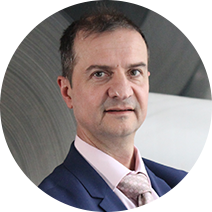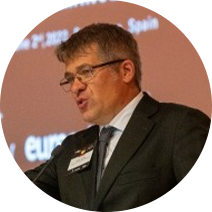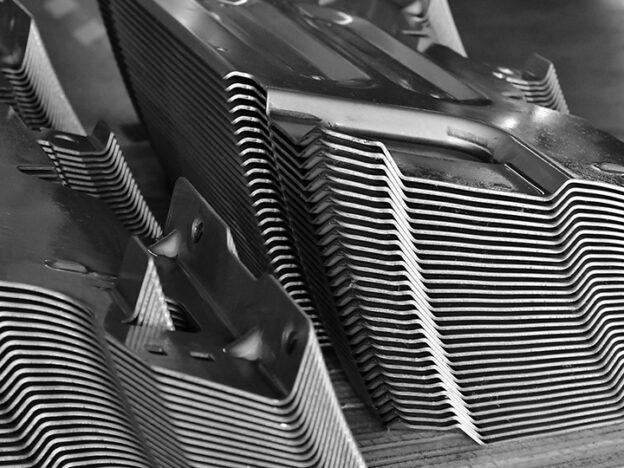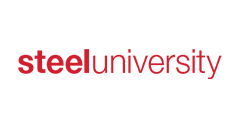Description
Date: January 18, 2023, 13.00 UTC. Webinar
Estimated Time: 1 hr
Language: English
Summary of the lecture
High strength sheet steels, such as advanced high strength steels (AHSS), are fundamental for the lightweight design of structural components in sectors like the automotive. Thanks to their excellent combination of strength and ductility, these high-performance materials allow to reduce part weight by sheet downgauging, while maintaining or even improving crash safety.
However, they have also introduced new challenges related to their higher cracking susceptibility during cold forming or under impact loading. In this context, concepts like cracking resistance, damage tolerance or fracture toughness have become unavoidable when addressing the design and application of high strength steels.
In this talk, the importance of implementing new fracture mechanics-based criteria to understand the cracking behaviour and in-service performance of high strength sheet materials will be shown. This behaviour can be addressed by understanding their fracture toughness properties. Accordingly, fracture toughness can be used to address many issues related to the cold formability of high strength steels and predict their fracture behaviour in different forming operations such as stamping, punching, hemming, deep drawing or high demanding bending.
The talk is divided into three presentations. The first one, given by Dr. Casellas, will provide the context to understand the need of new fracture criteria for AHSS, including relevant research findings and noteworthy previous projects. The second one will be presented by Dr. Frómeta, who will talk about the RFCS (EU Research Program) ToughSteel initiative and will present novel testing methodologies and successful industrial application cases. Finally, Javier Lopez-Quiles, will give some insights about the current state and the next steps on the standardization of the new fracture toughness testing methodologies for high strength ductile metal sheets.
Learning outcome
At the end of this course the participants will be able to:
- Understand the importance of measuring fracture toughness for the design and implementation of high-strength sheet steels with superior damage tolerance and crashworthiness
- Identify the different testing methodologies available to evaluate the plane stress fracture toughness of thin high strength metal sheets
- Know the industrial and economic benefits of implementing new testing protocols to assure the quality of high-performance steel products and prevent production losses
Speaker Introduction

Santiago Oliver
Sustainability, Energy, and Innovation Director
UNESID (Spanish Steelmaking Association)
- Sustainability, Energy, and Innovation Director at UNESID (Spanish Steelmaking Association)
- Secretary of the UNESID innovation Committee
- Secretary of Managing Commitee at PLATEA (Plataforma Tecnológica del Acero de España)
- Member of the Steel Advisory Group at the European Commission. DG RTD
- Member of several bodies at ESTEP, European steel Technological Platform
- Member of the Research Committee at Eurofer.
- Involved in Research Policy development at both European and Spanish level.
- Mining Engineer, Specialised in Engineer in Metallurgy, and Mineral refining. UPM. Politechnic University of Madrid.
- Master Environment Engineer and Management. Escuela de Organizacion Industrial. EOI
- Specialized in Natural Risk Management. UPM
- Specialised in Water treatment in rural areas. CSIC. Spanish Steel Research Council
- Crisis Management. ICMM. International Council on Mining and Metals.
- Grant holder at 94-95 at IVECO (automotive company) Electrotechnic Laboratory 97-98 UPM
- 98-00 at a Steelmaking site (currently ArcelorMittal Asturias),
- 00-03 Eurofer, since 2003 at UNESID

Dr. Daniel Casellas
Scientific Director
Eurecat
Dr Daniel Casellas, PhD in Materials Science. Since 2000 he is working in R&D and technology transfer from research institutes to industry. He is currently the Scientific Director of Eurecat and holds an Adjunct Professor position at the Solid Mechanics Division at Luleå University of Technology (Sweden). Dr Casellas has managed applied R&D projects on automotive and steelmaking sectors. He has been the scientific responsible of more than 60 funded R&D projects and industrial R&D contracts. He contributed to 74 publications in SCI journals, to more than 170 works in international conferences and holds 3 patents. He has supervised 4 PhDs. Research has been focused on the application of fracture mechanics to understand fatigue and fracture performance of engineering materials, mainly high strength steels, tool materials and advanced ceramics. Dr. Casellas is member of the Organizing Committee of the International Conference on hot sheet metal forming of high-performance steel (CHS2, www.chs2.eu).

Dr. David Frómeta
Researcher Unit of Metallic and Ceramic Materials
Eurecat
Dr. David Frómeta, PhD in Materials Science and Engineering. He is currently the head of mechanical behaviour in the Unit of Metallic and Ceramic Materials of Eurecat. His research is focused on the formability and fracture characterization of sheet metals and the study of the relationship microstructure-mechanical properties, with special focus on fracture mechanics testing of high strength metal sheets and lightweight sheet materials. Dr. Frómeta has participated and managed R&D projects related to the design and implementation of new advanced high-strength steels for lightweight applications in the automotive sector.

Javier López-Quiles
Project Manager
Spanish Association for Standarisation – UNE
Javier López-Quiles, Architect and Building Engineer (Technical University of Madrid), Master degree on Engineering applied to Cooperation (Open University of Catalonia). Currently, Project Manager at the Spanish Association for Standardisation (UNE), where he provides support to national and European technical committees for the development of standards related to construction and in particular to material testing committee, managing several secretariats, and providing expertise to international cooperation projects.




